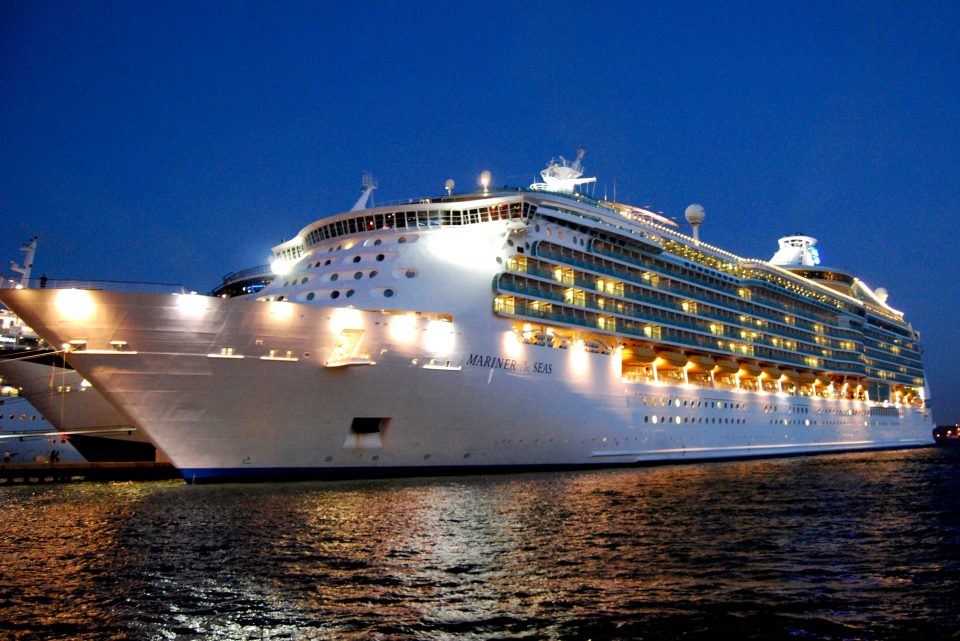A Physical Trip By Water
First of all, I must say I am a little biased, as my wife and I love travelling by boat, especially going on a holiday cruise. We went on our first one on our honeymoon; it is so convenient, safe and exciting. A floating hotel where the staff cannot seem to do enough for you, then a different stop every other day, along with lots to do for everyone on board. I am sure that everyone has had a bad experience in one way or another, but I really think cruises have improved a lot.
Lack of Information
There used to be a lack of information on where people that had a disability could go and this was due to whether the ship could dock at the port, or whether a tender (smaller boat) had to be used. Depending on the person’s disability and whether they wanted to go to that destination, would be down to safety.
I would be disappointed, but also understanding. If I had to go down a ladder into a smaller boat at sea, then back the other way; I know my limits and would perhaps take advantage of the facilities given onboard instead. Not that I cannot go up or down a ladder, but is it all worth it with all the other considerations?
Physical Accessibility for Wheelchair Users
I’ve seen a lot of news articles about wheelchair users not being able to go ashore, when travelling by boat, due to this situation, but as I have said, if the holiday had this information on their web site that a certain port will only be able to be accessed via a smaller boat and some people with limited mobility will be advised not to take the trip.
When going on and off the ship, all the ones I have been on, have ramps to assist everyone. However, some of them are very steep and it would take me a long time to get used to it if I was a wheelchair user. In addition, the main accessibility issue that stays with me is: on my first trip, there was a practise abandon ship exercise (no we did not get wet), so we all know where to go. This is like a fire drill. I remember that there was a queue for the lifts for wheelchair users to get to their individual collection point. I do not think the company had thought this through.
Attitudes of Others
The funniest experience I witnessed, and it was not necessarily related to people’s disability, was the attitude of passengers at the end of the trip.
Whilst on the cruise, everyone was so helpful to everyone else, with a “good morning”, or “can I help you?” However, on the last day when everyone went to get their luggage from the port, it was everyone for themselves, with people jumping over lines of bags, pushing past to get a case and bashing trollies to get out of the port to the car park.
Entertainment Accessibility
Some differences from the services from entertainment and leisure on land and the one at sea, is that the entertainment does not seem to be the same preference to accessibility. I am not sure about signing, but I know there was no Audio description on the TV, Cinema, or theatre. Just thinking about it, at night, it would be very difficult for a wheelchair user to get to the bar etc.
Disability Discrimination
I think sometimes, problems that people put down to disability discrimination, maybe a concerning loved one, who cannot control what is happening. An example of this was a story of someone’s father, who was over 80 and had to wait a little time for assistance.
Please Note: This is an American post so they use the word ‘handicap’, not a word that is used in Britain.
Royal Caribbean does not care about disabled people
Now there are many comments about this and a lot of them are in favour of the cruise company. By the way, I cruise with the same company. so using the examples in this blog, in my experience and some research, cruising does not seem to have as much a bad press for disabled people than other forms of travel, just a little understanding may relieve any pressure.
I wonder if it is that you spend time on the ship with the staff and they get to know you, also they do work with that expectation of gratuities. If gratuities are a factor, it emphasises the power of the purple pound and the change of attitude to airports and airliners on their handling of luggage.
There are many websites now advertising cruises for people with a disability. However, individuals will need to do some research to get the best out of their experience of travelling by boat to avoid disappointment.
Travelling by Boat – Digital tip
Different mediums used on websites allow the visitor to get the full experience that the site is offering. These can include; pictures, video and audio, which can enhance the experience and inform the visitor to not only find out information but to encourage them to engage with the site.
However, sometimes the information being given, in this medium, is not accessible for all. A Screen Reader User (visually impaired person), cannot see the pictures, or what is happening on videos, whereas, people with a hearing impairment, will not be able to hear the information. On the other hand, the use of alternative text on graphics will give information to people who cannot see it. Adding an audio description to videos will greatly improve their viewing and knowledge of the video. Putting captions, or a transcription of the video, will assist those people who cannot experience the sound. These accessible features are not difficult to use, whereas the change will make a difference to the information and experience on the website, especially if considering a cruise, or a trip on water.







